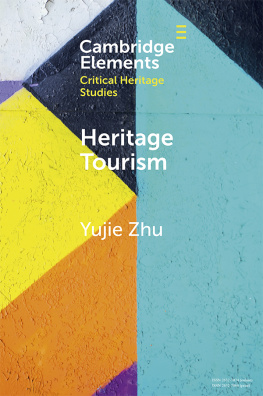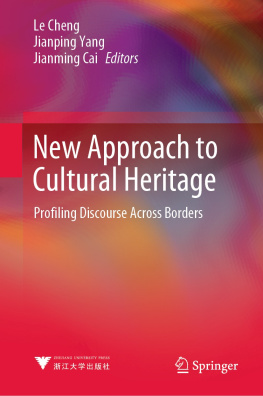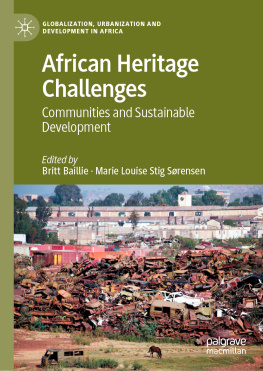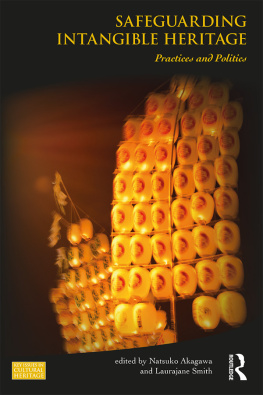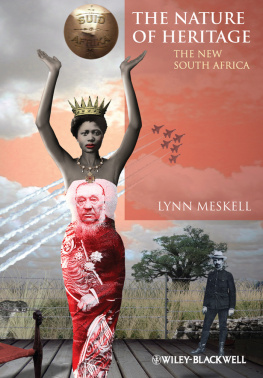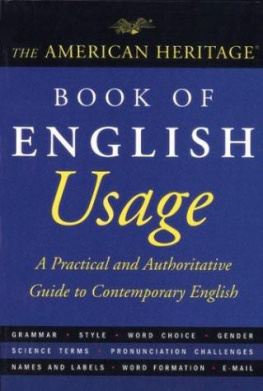Heritage, Nationhood, and Language
The notion of heritage has become one of the global tropes in recent years. At the heart of heritage politics are three questions: what heritage is, who decides what it is, and for whom is the decision made. However, existing work on heritage language has rarely tackled these questions, assuming that teaching children of migrants their heritage language empowers them. We challenge this assumption, situating the notion of heritage language in the host societys involvement in social justice, nation-building efforts, (superficial) celebration of diversity, and investment on global links the migrants offer as well as the migrants fear of discrimination and desire for belonging, social status, and economic gain. Based on ethnographic research in Bolivia, Peru, the United States, and Japan, we illuminate the complexity and political nature of determining what constitutes heritage language for migrants with connections to Japan. The articles in this volume open up a new field of investigation in heritage language studies: the complex linkage between heritage language and social justice for migrants.
The articles in this book were published in two issues of Critical Asian Studies in 2010: Vol. 42, No. 1 (March) and Vol. 42, No. 2 (June).
Neriko Musha Doerr received a PhD in cultural anthropology from Cornell University. She currently teaches cultural anthropology at Ramapo College (Mahwah, N.J.). Her recent publications include Meaningful Inconsistencies: Bicultural Nationhood, Free Market, and Schooling in Aotearoa/New Zealand (Berghahn Books, 2009; The Native Speaker Concept: Ethnographic Investigations of Native Speaker Effects (Mouton de Gruyter 2009; (as the editor), Global Structures of Common Difference, Cultural Objectification, and their Subversions: Cultural Politics in an Aotearoa/New Zealand School (in the journal Identities: Global Studies in Culture and Power).
HERITAGE, NATIONHOOD, AND LANGUAGE
Migrants with Japan Connections
Edited by Neriko Musha Doerr
First published 2011 by Routledge
2 Park Square, Milton Park, Abingdon, Oxon, OX14 4RN
Simultaneously published in the USA and Canada
by Routledge
711 Third Avenue, New York, NY 10017
Routledge is an imprint of the Taylor & Francis Group, an informa business
2011 BCAS, Inc.
The articles in this book were published in two issues of Critical Asian Studies in 2010: Vol. 42, No. 1 (March) and Vol. 42, No. 2 (June). The Publisher requests to those authors who may be citing this book to state, also, the bibliographical details of the issues of Critical Asian Studies on which the book is based.
All rights reserved. No part of this book may be reprinted or reproduced or utilised in any form or by any electronic, mechanical, or other means, now known or hereafter invented, including photocopying and recording, or in any information storage or retrieval system, without permission in writing from the publishers.
British Library Cataloguing in Publication Data
A catalogue record for this book is available from the British Library
ISBN13: 978-0-415-61213-5
Disclaimer
The publisher would like to make readers aware that the chapters in this book are referred to as articles as they had been in their original form in Critical Asian Studies. The publisher accepts responsibility for any inconsistencies that may have arisen in the course of preparing this volume for print.
Contents
Neriko Musha Doerr |
. |
Taku Suzuki |
. |
Yuri Yamasaki |
. |
Yuko Okubo |
. |
Neriko Musha Doerr and Kiri Lee |
. |
Ayako Takamori |
. |
Laura Miller |
. |
Krista E. Van Vleet |
. |
Barbra A. Meek |
Introduction. Heritage, Nationhood, and Language: Migrants with Japan Connections
Neriko Musha Doerr
The latter half of the twentieth century saw the notion of heritage become one of the critical global tropes, through which many have voiced their preoccupations and aspirations. At the heart of heritage politics are three questions: what heritage is, who decides what it is, and for whom is the decision made. Researchers on heritage language education have rarely asked these questions. Determining what constitutes ones heritage language is a complex effort; for migrants, claiming which language is their heritage language can also be a political statement. Based on ethnographic research in Bolivia, Peru, the United States, and Japan, the articles in this volume, Heritage, Nationhood, and Language, investigate diverse subjectivities of migrants with connections to Japan and analyze the processes by which they negotiate, contest, support, and rupture the notion of heritage. The authors examine the disjunctures between the notion of social justice and the experiences of empowerment and marginalization among these migrants. This volume sheds light on the conditions, processes, and effects of a particular language becoming ones heritage. Intersecting factors that influence the ways a language becomes ones heritage include a desire for belonging, a drive for social status, aspirations for economic gain, fear and guilt about discrimination, and an obligation and hope for social justice. This introduction outlines the historical and theoretical backgrounds to the subject and introduces the main arguments of the articles in this collection.
1. Learning to Be Transnational: Japanese Language Education for Bolivias Okinawan Diaspora
Taku Suzuki
Scholars and practitioners of heritage language education commonly hold two assumptions about heritage language: first, that heritage language is an official national language of a nation-state from which group originally migrated; and second, that heritage language is a vulnerable language on the verge of being eliminated by the national language of the nation-state of a migrants current residence. This article questions these two assumptions by examining Japanese language education and speech practices among Okinawan-Bolivians in a rural agricultural community called Colonia Okinawa. Okinawan-Bolivians heritage language education and speech practices suggest that immigrants who were marginalized in the nation-states of their migratory/ancestral origin, like Okinawans, consciously transform their linguistic heritage from a sub-national one to a national one in order to gain socioeconomic advantages in their migratory destination. Furthermore, when immigrant community leaders deem the international standing of the country of their migratory origin higher than their host countrys status, such as Okinawan-Bolivian leaders in Colonia Okinawa, they regard heritage language education as a crucial means to maintain their community members political, economic, and symbolic powers over other local residents. By ethnographically portraying the ways in which Japanese is taught and spoken in Colonia Okinawa, this article highlights the shifting scales and locations of the immigrant communitys ancestral homeland and draws attention to the multiple meanings of the language the community designates as its heritage.



